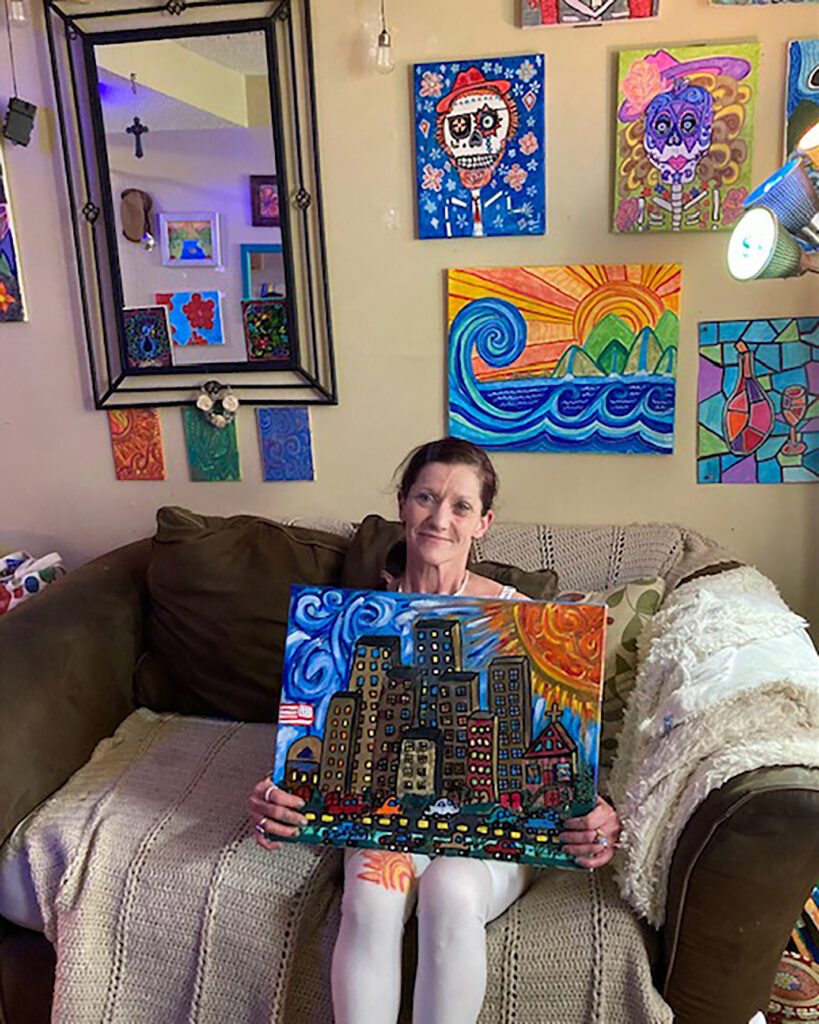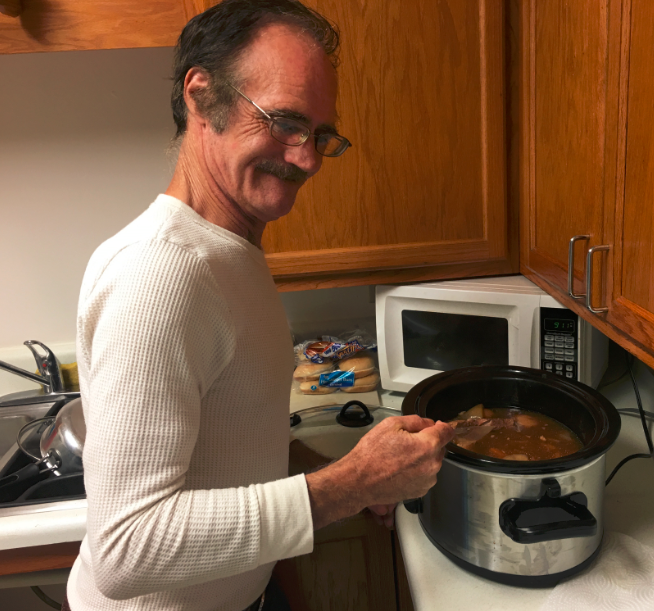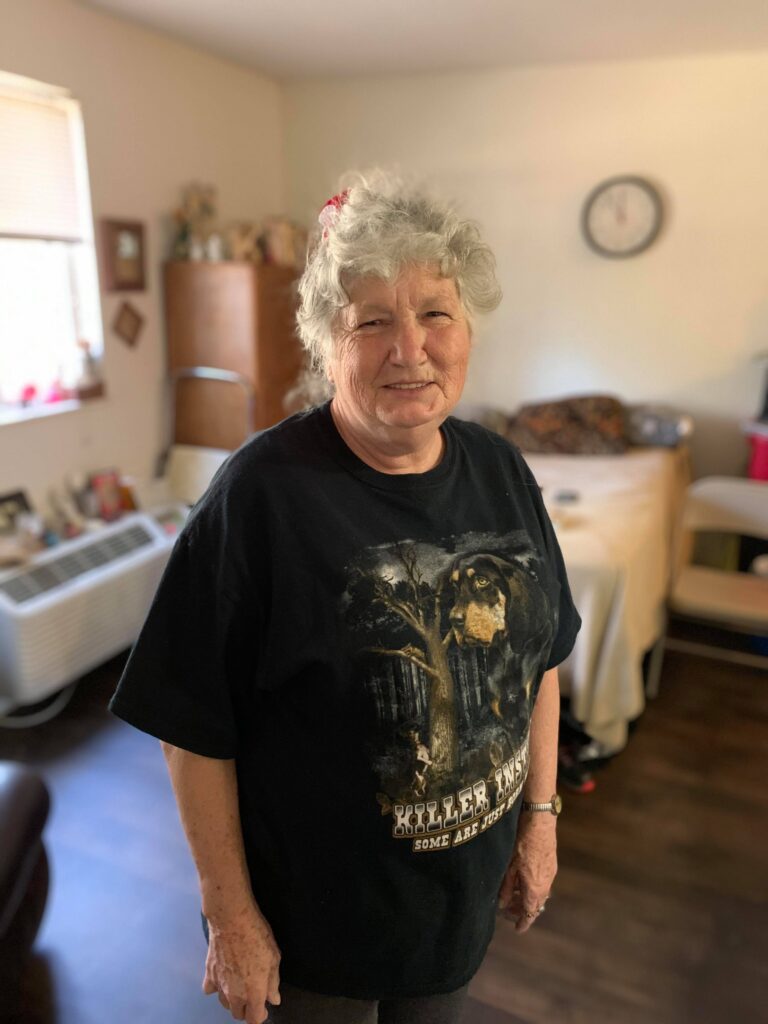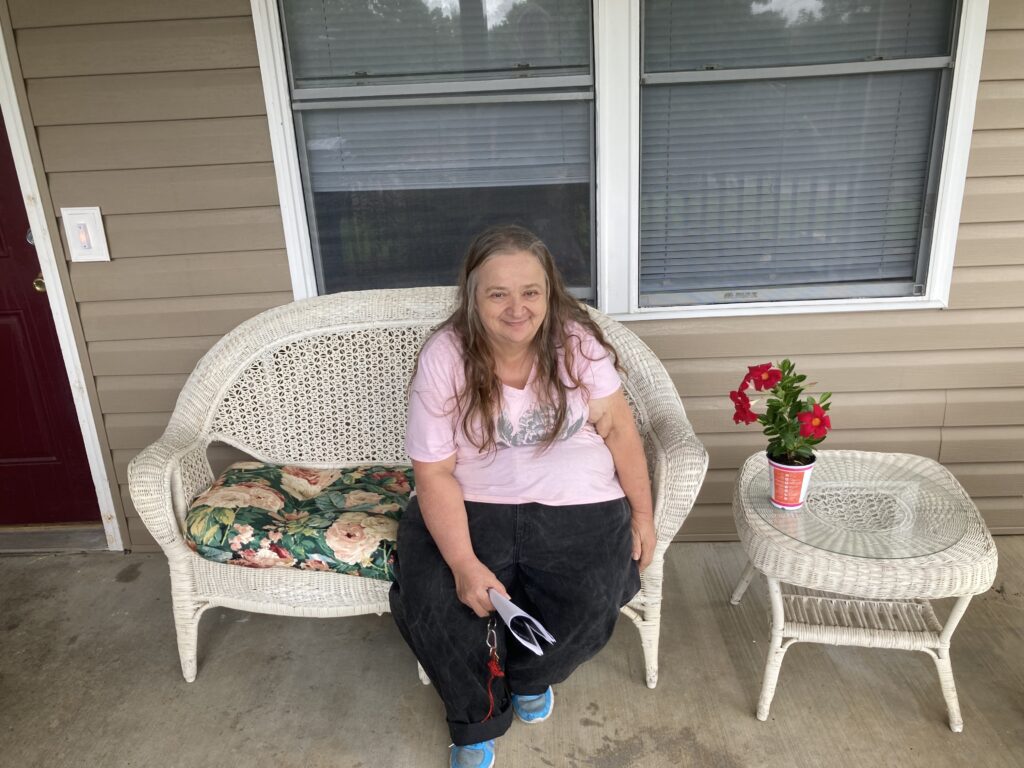Woodfin provided a better life for Tommy.
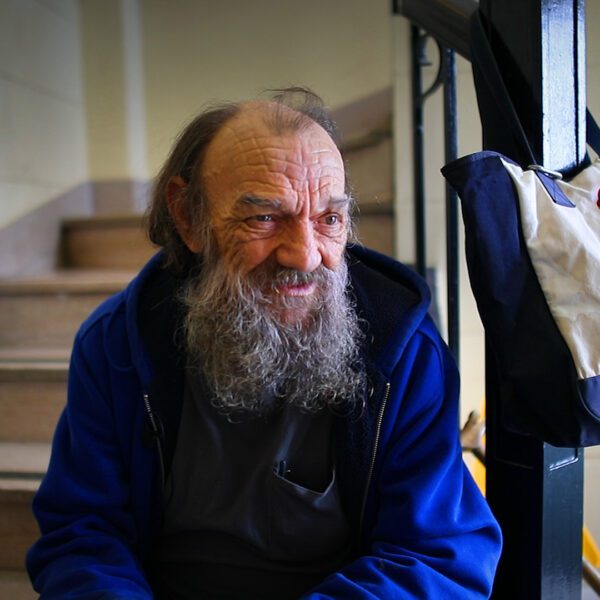
Folks in Permanent Supportive Housing are highly vulnerable individuals with physical and mental disabilities, and complex housing barriers. Most would not survive if left living on the streets. Tommy who lived in the Woodfin, Homeward Bound’s Permanent support Housing residence is a good example.
Tommy was homeless for 25 years before he came to Homeward Bound. He was a coal miner for decades in West Virginia and as a result of the awful conditions, he developed PTSD. He had chronic health issues from the coal mines and self-medicated with alcohol. His drinking led to losing his job, and ultimately, he lost his family. He traveled around from city to city working odd jobs. He got arrested for DUI and when he got out of jail he couldn’t find work, and started living on the streets.
In 2015, Homeward Bound moved him into an apartment. He was evicted from there because he couldn’t keep his apartment clean and had issues with the landlord. In 2017, we moved him into the Woodfin.
At 60 years old, Tommy had many serious health issues including end stage liver cancer, and alcohol and substance use disorders. If left living on the streets Tommy would have passed away.
But, through the Woodfin, Tommy was not only provided a home and a community, he was also connected to RHA for mental health treatment, Dale Fell and Mission Care Partners for medical treatment, and he’s had a really decent life for four years.
Sadly, Tommy is now in a nursing home, and will most likely remain there.

